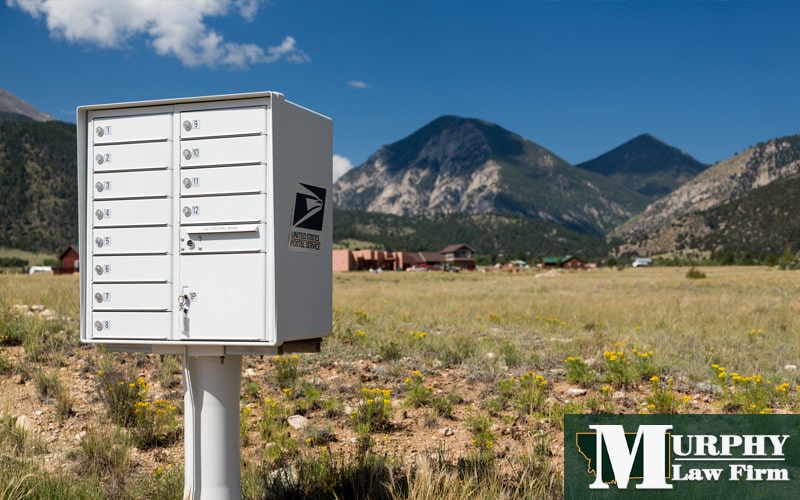
A guide to obtaining workers’ compensation benefits as a federal worker in Montana
There are an estimated 13,700 Montanans who work for the federal government, accounting for 3 percent of the total state workforce. Many of these federal employees work for the Department of Agriculture, Department of the Interior, Department of Veterans Affairs, Health and Human Services and Department of Homeland Security. Other federal workers are spread out across the military, education services, energy sector, Social Security and transportation.
If you are one of these federal employees and you sustain an injury at work, you are entitled to workers’ compensation benefits just like most other workers in the state. However, instead of going through Montana’s state workers’ compensation system, benefits are generally provided under the Federal Employees Compensation Act (FECA).
FECA was enacted on September 7, 1916. The law was established to help public servants who lost their wages due to work-related injuries. After a few years, the law became the framework for disability insurance.
Under FECA, the Department of Labor’s Office of Workers’ Compensation Programs (OWCP) is responsible for reviewing and ruling on claims submitted by all federal workers. The agency also mandates the Office of Personnel Management (OPM) with ensuring the restoration rights of the employees.
How does FECA compare to workers’ compensation?
While the Federal Employees Compensation Act is managed by the U.S. Department of Labor, private businesses contract private insurance companies to cover federal employees. Unless the employees intentionally caused their injury, they are generally entitled to compensation for an injury or illness arising from their employment. For instance, a worker who was intoxicated at the time of the injury may have their FECA claim denied.
Like workers’ compensation, FECA provides monetary payments to federal employees for injuries that happen while on the job. FECA also provides benefits to the families of deceased federal employees if the work-related injury or disease led to their death.
Certain federal workers who contract viruses and diseases (such as COVID-19) may be eligible for compensation if their employment puts them at higher risk than the general public—such as law enforcement and public health personnel, among others.
Once you file a FECA claim for a work-related injury, you are allowed to seek treatment from a physician of your choice. Federal employees can choose to seek treatment from an agency physician, or they can choose another physician of their choice. However, federal employers are generally not allowed to change the physician after the treatment starts, unless they get authorization from the OWCP.
If you change physicians without this authorization, OWCP may not pay for the medical expenses. Also, the OWCP has excluded certain physicians from being part of their compensation program. If you pick one of these physicians, the OWCP will inform you of the exclusion.
Some of the physicians whose services you can seek include surgeons, podiatrists, dentists, osteopathic practitioners, optometrists, clinical psychologists and chiropractors.
The agency you work for may request that you undergo a medical examination so that they can determine whether you are fit to come back to work after the treatment. The examination you undergo shouldn’t affect the compensation you get from the OWCP.
If the examination shows that you are unable to perform your duties, the agency may recommend leave without pay. This doesn’t affect your job restoration rights, and you can come back to work immediately after your recovery. It’s the duty of OWCP to re-employ the worker after recovery.
After treatment, the injured employee should stay in touch with OWCP and inform the agency of their health status. As soon as you are fit to get back to work, you’ll need to let the agency know.
What benefits are available under FECA to injured federal government employees?
- Medical expenses and travel. FECA pays for all of an injured federal worker’s medical expenses. The program also provides compensation for transportation costs to and from medical appointments.
-
Lost wages. If the injury leads to temporary or permanent total disability, you are entitled to compensation for lost wages as well. For employees who sustain temporary disability, federal law states that they can apply for the continuation of regular pay for up to 45 days. After 45 days (or if the employee doesn’t qualify for the continued pay), the employee may enter leave without pay and later claim compensation.
If the employee contracts an occupational disease that causes the disability, they don’t qualify for regular pay while off duty. They can only apply for leave without pay until they recover and then apply for compensation. Compensation will offer two-thirds of the salary if there are no dependents and three-quarters of the salary if there are dependents.
If the injury causes permanent disability, the OWCP considers the type of disability when compensating the employee; for instance, in case of permanent blindness in one eye, the employee will get compensation for 160 weeks that they may be out of work.
If the employee is not able to resume work after the injury, they will receive compensation for the employment lost.
- Death benefits. Up to 50 percent of the employee’s pay is given to their spouse in case of their death. If the work-related injury is fatal, the widow or widower receives up to 50 percent of their pay. If there are children, the spouse will receive 45 percent of the pay and the children will receive 15 percent each. If there is no widow or widower and there are only children, the first child receives 40 percent of the pay while the others recover 15 percent of the pay. If there is no widow, or widower or children, other family members such as parents and siblings are entitled to compensation.
In addition, the OWCP also offers the following benefits to most federal employees:
- Up to $200 per month for vocational rehabilitation
- Up to $1,500 per month for constant attendant fees
Why talk to a Montana FECA compensation and disability attorney
Initiating a FECA claim involves informing the OWCP of your injury by submitting certain paperwork. After you file the claim, the OWCP will determine whether or not to grant your claim. If you are unsatisfied with the ruling or the compensation being offered, a FECA claim attorney can help you push for better compensation and better terms of employment after your recovery.



